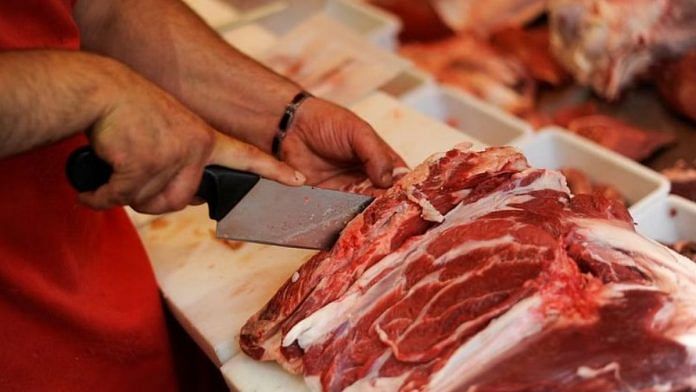Cell-based meat, also known as cultured meat, lab-grown meat, or clean meat, refers to meat produced from animal cells grown in a laboratory. It is widely believed that cell-based meat production is more environmentally friendly, ethical, and sustainable than traditional methods that involve raising and slaughtering animals. A 2021 report by United States-based analytics firm MarketsandMarkets estimated that the global cell-based meat market will reach $214 million by 2027 at a compound annual growth rate of 61.4 per cent. The report cites increasing concerns over animal welfare, environmental sustainability, and the growing demand for protein-rich foods as key drivers of market growth. The firm recently received approval from Singapore Food Agency for its ‘chicken bites’ made from cultured meat. It is a significant step toward the future of food.
Lab-grown meat is designed to appeal to meat eaters. As it becomes more widely available on the market, people will be able to consume meat without having to worry about the ethical and environmental implications of commercial farming.
Keeping health as a priority, there is a growing interest among nutrition researchers to evaluate the safety, sustainability, and nutritional quality of this ‘unnatural’ meat. Scientists are still learning about the subject. Let’s look at what we know about cultured meat and its possible effect on the environment and human health.
What good we are getting?
A recent study published by Switzerland-based research publisher Frontiers mentions the environmental impacts of cell-based meat production. According to the study, it could reduce greenhouse gas (GHG) emissions by up to 78 per cent and land use by up to 99 per cent. Another study by ACS Publications said that cell-based meat production could reduce GHG emissions by up to 96 per cent and land use by up to 99 per cent compared to traditional beef production.
Since cell-based meat is produced in a controlled environment, it carries a much lower risk of pathogen contamination than traditional meat. A team of researchers published a report in ScienceDirect in 2018, which says that cell-based meat production could reduce the risk of contamination by bacteria such as E. coli and Salmonella. This would largely be due to the elimination of animal slaughter and reliance on antibiotics in animal husbandry. Additionally, cell-based meat can be produced with lower levels of saturated fat, making it a healthier option. Moreover, producing cultured meat requires little to no land and water, making it sustainable as well.
Lab-grown meats are free of growth hormones as well. Commercial livestock factories use these hormones to expedite the growth of farm animals. Their excess use has harmful health outcomes. A European Union-appointed research committee examined six growth hormones used in raising cattle. It concluded that the growth hormones had “developmental, neurobiological, genotoxic, and carcinogenic effects.”
Also read: Lab grown, planet-friendly meat is here. But are we ready for it?
Potential challenges
The possible negative health effects of cultured meat and its lack of variety present a multi-faceted challenge. Most consumers prefer natural products and reject foods derived from unnatural sources.
Researchers say that coming up with the appropriate culture medium for producing lab-grown meat remains a challenge. Fetal bovine serum is currently used as the culture medium. But that is derived from the blood of a dead calf, which is expensive and the process contradicts the ethical standards of lab-grown meat. Scientists have not yet developed true muscle with an organised network of blood vessels. Consequently, consumers have difficulty enjoying different cuts of meat. We’re still a long way from reproducing the original flavour and taste of meat derived from different species.
Lab-grown meats are new, and the health outcome is still unknown. In a recent review, Sghaier Chriki and Jean-François Hocquette mentioned that due to rapid cell multiplication, dysregulation — a type of metabolic abnormality — can develop in the cell linings of cultured meat. The authors pointed out that these cell linings might possess cancerous properties, and consuming them may have negative consequences on the human body, with the exact effects remaining unknown.
Cultured meat can be the food of the future. It is free of antibiotics, germs, and doesn’t emit GHGs. If commercialised effectively, it can feed the masses. The nutritional profile of these meats can also be tweaked to a healthier version. However, their success depends on developing new cell lines and optimising growth conditions to produce meat that is more similar in texture, flavour, and nutritional composition to traditional meat.
Safety is the second most important criterion to consider. Hazards related to disrupted cell linings could cost human health. Rigorous testing and regulatory oversight are needed to meet high safety standards. While there is no doubt that cell-based meats will use fewer resources than traditional meat production, effective waste management is crucial to ensure true sustainability. Consumer acceptance will ultimately determine the success of cell-based meats. There will be a need to educate consumers about it and address all their concerns about safety, quality, and sustainability.
Subhasree Ray is Doctoral Scholar (Ketogenic Diet), certified diabetes educator, and a clinical and public health nutritionist. She tweets @DrSubhasree. Dr. Shoba Suri is a Senior Fellow with ORF’s Health Initiative. Shoba is a nutritionist with experience in community and clinical research. Views are personal.
(Edited by Humra Laeeq)



